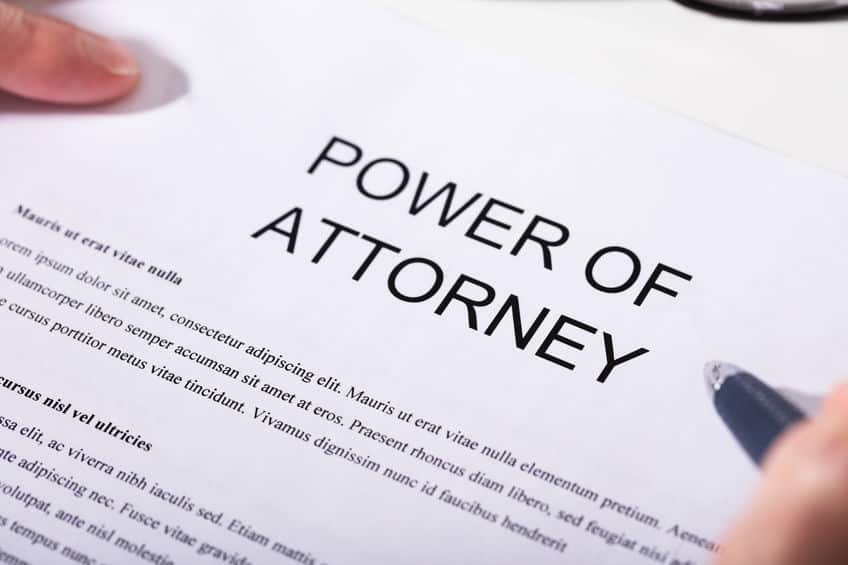
When it comes to planning for the future, many people immediately think of creating a will. While a will is indeed crucial for outlining how your assets will be distributed after your passing, there is another legal document that often goes overlooked but is equally as important – a Power of Attorney. In fact, renowned financial expert Martin Lewis boldly states that “a Power of Attorney is more important than a will”. In this article, we will explore the importance of Power of Attorney and why it should be a priority for individuals of all ages.
What is a Power of Attorney?
A Power of Attorney (PoA) is a legal document that grants someone else the authority to handle your affairs on your behalf. This appointed person, known as an attorney, can make important decisions and take necessary actions should you become unable to do so yourself. While the types and specific powers granted may vary based on the jurisdiction, there are typically three main types of Power of Attorney: General, Continuing, and Welfare.
General PoA
A General Power of Attorney provides your chosen attorney with specific or limited powers to manage your affairs. It is important to note that this type of Power of Attorney ceases to be valid if you become incapacitated and can no longer look after your own affairs.
Continuing PoA
Similar to a General Power of Attorney, a Continuing Power of Attorney appoints someone to handle your financial assets. However, unlike a General Power of Attorney, this type continues to be in effect even if you become incapable of managing your affairs.
Welfare PoA
A Welfare Power of Attorney empowers someone to make decisions regarding your welfare, such as healthcare and living arrangements. Just like a Continuing Power of Attorney, a Welfare Power of Attorney remains valid even if you lose the ability to make these decisions yourself.
It is worth noting that the terminology and specific types of Power of Attorney mentioned here are specific to Scotland. In England, the equivalent document is called a Lasting Power of Attorney, which can be further categorised as a Financial Power of Attorney or a Welfare Power of Attorney. However, in England, these two types cannot be combined into a single document as they can be in Scotland.
Why is a Power of Attorney Important?
Protecting Your Financial Affairs
While a will ensures your wishes regarding the distribution of your assets are carried out after your passing, a Power of Attorney safeguards your interests while you are still alive. Imagine a scenario where you are involved in an accident or suffer an unforeseen illness that renders you unable to manage your finances. Without a Power of Attorney in place, your loved ones may encounter significant difficulties accessing your finances and making essential financial decisions on your behalf. This can lead to financial strain and potential legal complications for your family.
Ensuring Continuity and Peace of Mind
A Power of Attorney provides a sense of continuity and peace of mind, knowing that someone you trust will be able to step in and handle your affairs seamlessly if the need arises. Whether it’s a temporary incapacity or a long-term situation, having a designated attorney ensures that your financial matters will be taken care of efficiently and according to your best interests. It allows for a smooth transition of decision-making power and prevents unnecessary delays or disputes.
Not Just for the Elderly
Contrary to popular belief, a Power of Attorney is not just for the elderly. Accidents and unexpected health issues can happen at any age, making it crucial for individuals of all life stages to consider establishing a Power of Attorney. Young couples, for example, should seriously contemplate the potential financial consequences if one partner were to lose their faculties and the other was locked out of accessing their finances. By having a Power of Attorney in place, couples can protect themselves and their financial well-being, regardless of their age or circumstances.
How to Establish a Power of Attorney
Establishing a Power of Attorney is a relatively straightforward process, but it is essential to seek professional legal advice to ensure that the document is properly drafted and in compliance with the laws of your jurisdiction. Here are the general steps involved in setting up a Power of Attorney:
- Choose Your Attorney: Select someone you trust implicitly to act as your attorney. This person should have your best interests at heart and possess the skills necessary to handle your affairs responsibly.
- Consult with a Solicitor: Schedule a consultation with a solicitor who specialises in estate planning and Powers of Attorney. They will guide you through the process, explain the different types of Power of Attorney available in your jurisdiction, and help you determine the best course of action based on your specific circumstances.
- Draft the Document: Work with your solicitor to draft the Power of Attorney document. Ensure that it accurately reflects your wishes and grants the appropriate powers to your attorney. Your solicitor will ensure that the document conforms to legal requirements and is properly executed.
- Sign the Document: Once the document is prepared, review it carefully with your solicitor. If you are satisfied with its contents, sign it in the presence of appropriate witnesses as required by law. Your solicitor will guide you through the signing process to ensure its validity. In the case of a Continuing and/or Welfare Power of Attorney, a Certificate of Competence must be completed and the Power of Attorney registered with the Office of the Public Guardian Scotland.
- Inform Relevant Parties: Make sure to notify your chosen attorney and any relevant institutions, such as banks or healthcare providers, about the existence of your Power of Attorney. This will enable a smooth transition of authority when the time comes.
It is important to remember that a Power of Attorney can be revoked or updated at any time as long as you are mentally capable of doing so. Regularly review your Power of Attorney to ensure it aligns with your wishes and continues to reflect your current circumstances and chosen attorney.
Conclusion
While creating a will is undoubtedly important for ensuring the orderly distribution of your assets after your passing, we cannot understate the importance of Power of Attorney for protecting your interests during your lifetime. By establishing a Power of Attorney, you can safeguard your financial affairs, ensure continuity, and provide yourself and your loved ones with peace of mind. Remember, a Power of Attorney is not solely for the elderly – accidents and unexpected situations can happen to anyone. Take the necessary steps to protect yourself and secure your future by consulting with a solicitor and establishing a Power of Attorney today.
Specialist Power of Attorney solicitors in Dunfermline
Here at maloco mowat parker, Stacey Parker specialises in Wills, Powers of Attorney and dealing with Estates. Stacey has many years’ experience in these matters, not only for clients from Dunfermline but across Fife and throughout Scotland. If you would like any advice or assistance in drawing up a Power of Attorney, please call Stacey on 01383 629720 or send her an email to stacey@maloco.co.uk






